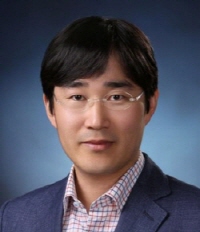Department News
Prof. Seung Hwan Ko’s Research Team Develops Transparent Electronic Skin Sensors Using Kirigami Approach
SNU Dept. of Mechanical and Aerospace Engineering Professor Seung Hwan Ko’s Research Team Develops Transparent Electronic Skin Sensors Using Kirigami Approach
- Published on Nano Letters, Selected as ‘American Chemical Society (ACS) Editor’s Choice’
<Prof. Seung Hwan Ko, SNU Dept. of Mechanical and Aerospace Engineering><?xml:namespace prefix = "o" ns = "urn:schemas-microsoft-com:office:office" />
On September 17th, Seoul National University College of Engineering (Dean: Kookheon Char) announced that Professor Seung Hwan Ko of the Dept. of Mechanical and Aerospace Engineering and his research team developed transparent electronic skin, using the ‘kirigami’ approach. E-skin is attached to human skin to monitor body conditions. The research proposed an easy way to fabricate e-skin for a variety of situations.
E-skin needs to be transparent and stretchable in order to resemble and function like human skin. However, current electrodes are either not transparent due to material limitations, not stretchable, or experience fluctuations in electrical properties.
The research team proposed an innovative way to cut the transparent electrodes into a variety of patterns. Inserting the kirigami structure in the patterning process in electrodes, the e-skin can be stretched with stability, changing its shape according to the surface of the skin.
Using the kirigami transparent electrodes, the team developed transparent e-skin that can be attached to the curved surface of the skin, fabricating a transparent kirigami heater and electrophysiology sensor.
Transparent e-skin can be utilized in the field of IoT/ICT using biometric signals. They successfully carried out an experiment where electromyography (EMG) signals received from human muscle by this e-skin were translated into operational signals for a drone, controlling it by gesturing with human arms.
“We came up with an easier method to fabricate transparent electrodes for electronic skin, using the kirigami approach,” Prof. Ko explained. “This research presents a variety of possible applications from medical uses to human-machine interface (HMI).”
The research was selected as ‘ACE Editor’s Choice’ by the American Chemical Society (ACS). It was also published on the August 4th issues of Nano Letters.
Title : Stretchable and Transparent Kirigami Conductor of Nanowire Percolation Network for Electronic Skin Applications(First author: Phillip Won, Jung Jae Park; Corresponding author: Prof. Seung Hwan Ko)
Related articles:
SNU Engineering News https://eng.snu.ac.kr/node/17586
The Korea Economic Daily https://www.hankyung.com/society/article/2019091752631

